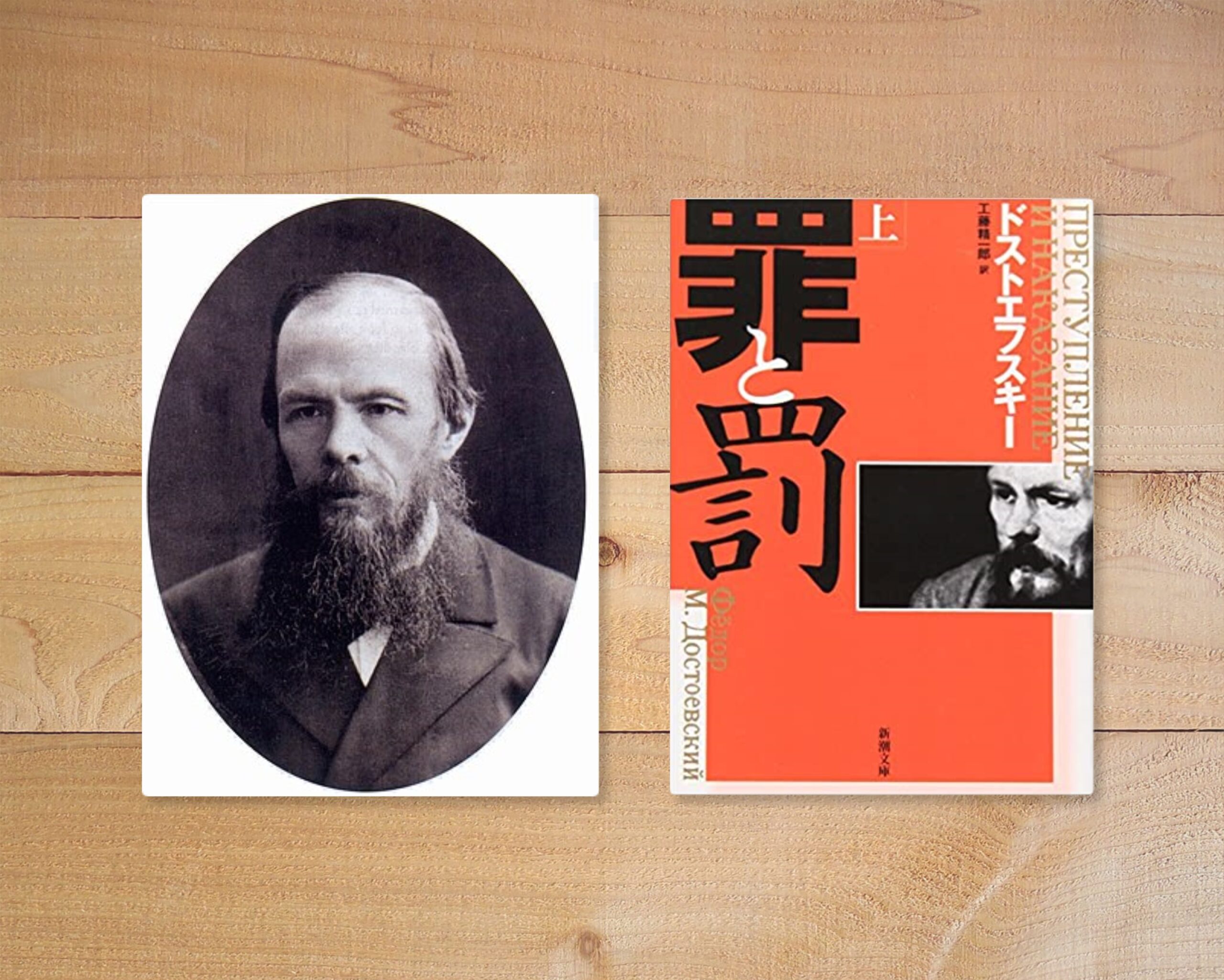Table of Contents
- 1 (1) A brief introduction to the first half of Dostoevsky's life (1821-1866, from his birth to the time of "Crime and Punishment") before meeting his wife, Anna.
- 1.1 Dostoevsky's Birth and Childhood
- 1.2 Dostoevsky the Literary Youth and the Birth of Dostoevsky the Writer
- 1.3 Dostoevsky's Siberian Exile
- 1.4 Dostoevsky's first marriage and his wife Mariya Isaeva
- 1.5 Dostoevsky's Return to Russia and First Trip to Western Europe
- 1.6 Spectacular love with Apolinariya Suslova, the woman of destiny.
- 1.7 Tragedy 1864. Death of his wife and brother. The year of Dostoevsky's despair.
- 1.8 The Birth of Crime and Punishment
(1) A brief introduction to the first half of Dostoevsky's life (1821-1866, from his birth to the time of "Crime and Punishment") before meeting his wife, Anna.
Dostoevsky's Birth and Childhood
Dostoevsky was born in Moscow in 1821. His contemporaries Turgenev and Tolstoy were born in 1818 and 1828, respectively. Hugo was born in 1803, Dickens in 1812, and Marx in 1818. All of these eminent figures lived at the same time.
Dostoevsky's father Mikhail was a physician and his mother Maria was the daughter of a wealthy merchant.
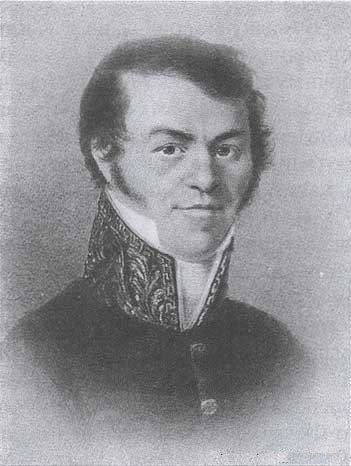
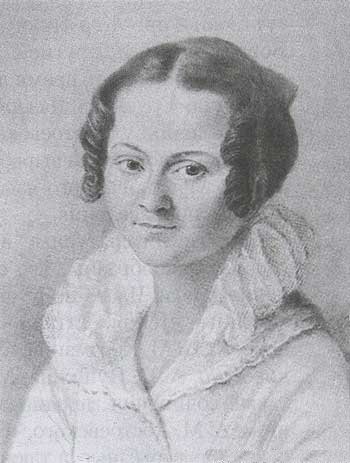
In 1827, his father Mikhail was promoted to the 8th rank and became a member of the aristocracy, and by 1831, he had a fiefdom in the village of Darovoye. However, unlike Tolstoy, Turgenev, and other great aristocrats, he led a modest life as a middle and lower class noble.
Dostoevsky had one older brother, two younger brothers, and two younger sisters. Among them, the connection with his older brother Mikhail was so significant in his life.
Dostoevsky read The Bible with his parents from an early age, and by the time he was ten years old, he was reading Schiller'sThe "group theft."He was a highly impressionable child who was strongly impressed by the plays of
As they grow up, their inclination toward literature becomes clearer. Together with their older brother Mikhail, they read literary magazines and engage in poetry and literary discussions. The two would fight together through literature in adulthood.
In 1837, when Dostoevsky was 16 years old, his mother Maria died of illness at a young age, and Dostoevsky was devastated. His grief at the loss of his mother's kind and watchful presence seems to be connected to his later relationship with his wife Anna.
Two years later, in 1839, his father also passed away. There have been many theories about his father's sudden death. The theory that he was murdered because of the resentment of the serfs has been widely discussed, but recent research has refuted this theory. Freud's famous application of the Oedipus Complex theory to Dostoevsky over his father's death has been radically overturned. For more on this, see the following articleI seriously wondered if "The Brothers Karamazov" is really a novel about the murder of a father - reading Freud's "Dostoevsky's Murder of the Father."I would like to refer interested parties to the following pages for more details.
Dostoevsky the Literary Youth and the Birth of Dostoevsky the Writer
Dostoevsky completed his studies at the Petersburg Military Academy, where he was a student. However, as a young man of letters, Dostoevsky's desire to become a writer grew stronger and stronger.
In 1843, at the age of 22, he graduated from the School of Engineering and went to work for the Bureau of Drafting. It is very interesting to know that Dostoevsky, a great writer, worked as a draftsman. Dostoevsky's sensitivity to landscapes and buildings may have been influenced by such draftsmanship.
However, Dostoevsky, a young man of letters, did not settle for such a corporate lifestyle. He quit his job after one year and decided to devote himself to his creative work. Dostoevsky, the "writer," was born. Although he had a legacy from his parents, he had no fixed income, and he was literally running out of steam.
Dostoevsky is a birth pang. He quit his job, pushed himself to the limit, and immersed himself in production. The crystallization of his efforts was his debut work, completed in 1845.The Poor.It was.
Dostoevsky's story is about a poor, bumbling bureaucrat in St. Petersburg who falls sadly in love with a thin-skinned maiden named Warlinka.
This novel caused a tremendous sensation as a debut novel. When he showed the finished work to his friend Grigorovich, he was so impressed that he immediately introduced it to the poet Nekrasov. He, too, was astonished by the work and rushed to see Belinsky, a great figure in the literary world. The story of what happened at that time is still told today as a famous episode in Russian literature.
When Nekrasov, moved by "The Poor People," went to Belinsky, the great critic of the time, and exclaimed, "A new Gogol has appeared," the latter did not take him seriously at first, saying, "Gogol grows like mushrooms at your place. However, once he started reading the work, he himself became so excited that he asked Nekrasov, "Bring him to me, bring him to me quickly. The next day, Dostoevsky appeared in front of Belinsky, and gave him his assurance, "You will be a great writer, I am sure. This is a famous episode in the history of Russian literature, and it seems that Dostoevsky himself never forgot the impression he felt at that moment.
Shinchosha, Dostoevsky, translated by Hiroshi Kimura, The Poor People, p256
Gogol was one of the most popular Russian writers of his time. Belinsky's wife, Katherine, was very excited! Belinsky was in a great excitement.
That is how sensational "The Poor People" was.
Dostoevsky became the darling of the Russian literary world as soon as he made his debut. Dostoevsky's success was so great that one wonders if he ever made such an impressive debut. Dostoevsky was sought after everywhere he went. He was so much in demand everywhere he went that he was so excited by his interactions with people he had never met before, including the upper class. It was during this period that he met Turgenev. Turgenev, who had made his debut one step ahead of Dostoevsky and had already made a name for himself, was one of Dostoevsky's admirers.
However, as those familiar with Russian literature know, Dostoevsky and Turgenev later became bitter enemies. In Baden-Baden, Germany, where I will be visiting from now on, the two even got into a big fight that will go down in the history of Russian literature. Since we are here, let's take a look at how these two men met.
On November 16, 1845, he wrote to Mikhail (*Dostoevsky's brother).
No, Nii-san, there has never been a time when my fame has been as high as it is now. I have received incredible respect everywhere, and the curiosity about me has been tremendous. I have been introduced to countless people, even to their personalities. (I have been introduced to countless people, including dignitaries.)
Everyone treats me as a miracle. I can't even talk, lest someone here or there mention that Dostoevsky said this or that, or that Dostoevsky is about to do that. Belinsky loves me more than I can think of ......"
His friendship with Turgenev, a handsome aristocrat, particularly tickled the budding writer's self-esteem.
Just recently, the poet Turgenev (I am sure you have heard of him) came back from Paris and developed a strong attachment and friendship for me, which Belinsky explained as Turgenev having fallen in love with me. But, Nii-san, what a wonderful person you are! I almost fell in love with him myself.
Poet, gifted, aristocrat, handsome, rich, wise, cultured, and twenty-five years old - it is hard to imagine what heaven did not give him.
In addition, she has a straightforward and beautiful personality, built up by a solid upbringing. ......"
The long-standing feud between Dostoevsky and Turgenev began when they fell in love with each other.
The pathologically egotistical writer suddenly entered "high society" from the dreary environment of the Mariinsky Hospital, the closed world of the military academy, and a time of poverty and obscurity.
He is fascinated by Turgenev's aristocracy. This aristocracy, which is nothing else but aristocratism, soon becomes irresistible to him.
Chikuma Shobo,Motuliski,Translated by Yutaka Matsushita and Kyoko MatsushitaA Critical Biography of Dostoevsky.P53-54
*some line breaks.
As I mentioned earlier, their first meeting seemed to begin with a good impression of each other. Dostoevsky even fell in love with him.
But such relationships do not last long.
Dostoevsky is suddenly plunged into the upper class and loses his mental balance. By nature self-conscious, too sensitive, and too clumsy, he was gradually shunned by the literary world. He definitely lacked the ability to act with flair in a group of cool people.
And his second filmDual personalities (alter egos)."was published, it was heavily criticized by the literary world. Dostoevsky, who had tasted heaven with his debut novel, "The Poor People," was now beaten to the bottom of the heap.
Dostoevsky was in such a state of hopeless shock that he suffered a mental disorder. He has lost his mind. His words and actions became increasingly haughty and out of touch with his literary peers.
The young writer's vanity and haughty, challenging attitude drove the literati away from him. Relentless slanderous attacks began, ridicule and satirical poetry were hurled at him.
In the custom of the literary circles of the time, such "chasing away" was often carried out. Avdoucha Panayeva writes
It would be a disaster if young writers were to join the circle and become the object of criticism. But Dostoevsky, as if on purpose, invited such an occasion with his irritability and his arrogant attitude of flaunting his talent as if he were better than anyone else.
There, he began to take down the shelves, and his constant innuendos irritated his self-esteem. Turgenev was particularly adept at this.
He deliberately gets Dostoevsky involved in a controversy and brings him to the verge of exploding. Dostoevsky forgets the back and forth and leaps to excuse his ridiculous opinions, which he had spouted in a fit of passion. Turgenev takes advantage of the situation and makes fun of him.
Dostoevsky became a paranoid man. He believed that everyone was coveting his talent, and every casual word he said was an attempt to belittle his work and insult him.
He would come to our house with seething hatred and burst into a tantrum that made him feel suffocated, taunting the naysayers with one word or another.
But people did not tolerate this sick, nervous man, but irritated him more and more with all kinds of ridicule.
Grigorowicz's description of the pain he inflicted on the "sick man."
The unexpected turn of events, from venerating the author of "The Poor People" to immediately and irredeemably slamming his literary talent, would have been enough to make even a person as sensitive and self-esteemed as Dostoevsky despair. He soon began to avoid the people in Belinsky's circle, retreating into his own shell even more than before and becoming extremely irritable.
When he met Turgenev, Dostoevsky, unfortunately, could not restrain himself and vented his seething anger, saying, "I am not afraid of any of you, watch now, I will trample you all in the mud.... .......
After a dispute with Turgenev, Dostoevsky finally parted company with Belinsky's circle. Since then, he has never set foot in the circles of Belinsky. He was bombarded with alarming and satirical poems, and accused of having an astonishing self-esteem and of being jealous of Gogol.
Chikuma Shobo,Motuliski,Translated by Yutaka Matsushita and Kyoko MatsushitaA Critical Biography of Dostoevsky.p64-65
*some line breaks.
Yes, Dostoevsky has his faults, but I can't help but feel sorry for him...
The rupture between Dostoevsky and the "Moderns" group, and the accusatory slander joined by such literary giants as Turgenev and Nekrasov, was an embarrassment to the Russian literary world. Dostoevsky's hatred was focused on Belinsky and Turgenev, as it was on all the evil embodiments of the "Petersburg period of Russian history. This antagonism played a major role in the development of his outlook on life.
Chikuma Shobo,Motuliski,Translated by Yutaka Matsushita and Kyoko MatsushitaA Critical Biography of Dostoevsky.p67
I think this is what causes Turgenev to become a bad boy for those who love Dostoevsky.
Turgenev, the man who bullied the great writer Dostoevsky. I think I had such an image of Turgenev as a man who bullied the great writer Dostoevsky. However, this is a viewpoint from Dostoevsky's side, and I am sure that Turgenev would have a different point of view. I cannot say more here, but Dostoevsky's debut as a writer was like a roller coaster ride from heaven to hell.
In any case, I think that these scenes from his younger days have already begun to give you a sense of Dostoevsky's character. An overly excessive spirit that swings from one extreme to the other with an inability to get along with others. We will follow how Dostoevsky's character changes after his marriage to Anna.
Dostoevsky's Siberian Exile
Dostoevsky's second novel, "Dual Personalities (alter ego)," received critical acclaim, and he went on to publish a series of short stories, but none of them were successful... After tasting heaven in his debut novel, Dostoevsky was pushed further and further into a corner.
In this desperate state of mind, Dostoevsky began to frequent the socialist thought circles organized by Petrashevsky in 1848.
In this circle, which Dostoevsky began to frequent, they discussed the abolition of serfdom, censorship, and the improvement of workers' rights, focusing on Fourier's ideas.
However, in Russia at that time, when the Czar held powerful authority, socialist ideas that criticized the system were subject to suppression.
In 1849, the circle to which Dostoevsky belonged was accused of plotting terrorist acts. Although Dostoevsky himself denied that he was actually planning to commit terrorism, his conviction was never overturned.
After a six-month detention period, Dostoevsky was escorted to Siberia on December 24. He was heading for Siberia, a land of extreme cold where temperatures can reach minus 40 degrees Celsius.
However, the Siberian exile was a major turning point in Dostoevsky's life as a writer. Dostoevsky wrote a novel about his experiences in Siberian exile.The Record of the House of Death."It is.
This Siberian experience was to prove decisive in Dostoevsky's life as a writer.
Dostoevsky's first marriage and his wife Mariya Isaeva
Dostoevsky was not allowed to return to Petersburg until 1859. In fact, he had been in exile for 10 years.
But he was not in a Siberian prison for the entire decade. Dostoevsky spent only about four years in a Siberian prison. After that, he was stationed in Semipalatinsk (now Semey, the capital of Kazakhstan) as a soldier.
Dostoevsky fell passionately in love during his stay.
That partner was a woman named Maria Dmitrievna Isaeva, Dostoevsky's first wife.
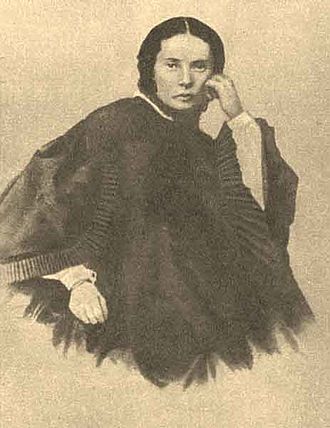
But this love was a dangerous one to begin with, with a sense of doom in the air. In "Dostoevsky's Critical Biography," the following is a description of this woman.
Vrangeli (*blog author's note, a friend of Dostoevsky's in the area) recalls. "Mariya Dmitrievna Isaeva was a rather beautiful blonde woman of medium ...... height, who was somewhat over thirty years old. She was terribly thin and had a flabby, excitable nature. By now, a sinister blush was dancing on her pale face. She was bookish, quite educated, knowledgeable, good-natured, and very lively and sensitive." [omitted].
She married a schoolteacher, Alexander Isaev, and had a son, Pavel, but he was terribly lonely and unhappy. A drunken husband, poverty, and a dreary life in the countryside were the miserable fate of this passionate dreamer. She approached Dostoevsky, who was in love with her, but did not respond with the same emotion, seeing him as "a man with no future. Dostoevsky soon suffered a terrible blow. In May 1855, Isayev was transferred to Kuznetsk, and he had to leave her. According to Vrangeli's recollection, Dostoevsky "cried out loud like a child.
Chikuma Shobo, MotuliskiTranslated by Yutaka Matsushita and Kyoko MatsushitaA Critical Biography of Dostoevsky.p170-171
As we see here, Maria was already married with a husband and a child. Dostoevsky fell madly in love with such a woman.
It is not surprising that Dostoevsky, who was originally awkward with women, found his desire for women even more aroused by his life in Siberia.
There is no doubt that Maria was one of the most cultured women in Siberia and Semipalatinsk. Dostoevsky, an educated man, could not have found a more charming woman who understood what she was talking about. Maria's passionate and stimulating charms also made Dostoevsky fall head over heels in love with her. Maria did not seem to have any feelings for Dostoevsky, but the fact that a grown man "cried out loud like a child" shows how passionate Dostoevsky was.
However, things take a sudden turn. Maria's husband has died of illness. Without a husband, marriage was possible! Dostoevsky, in a fit of passion, proposed marriage. Maria was about to marry a younger teacher, but Dostoevsky finally managed to marry her.
The peak of happiness! Moving violently from one extreme to the other, Dostoevsky has finally reached the peak of happiness again!
...But that happiness was quickly shattered. Unfortunately, his marriage with her turned out to be a series of misfortunes and anguish.
Maria's health, which was already ill with tuberculosis, worsened day by day, and her mental health began to suffer as well. Maria's temperamental personality grew stronger and stronger, and she and Dostoevsky argued day after day. Dostoevsky himself was a temperamental and jealous man. He also had a very poor capacity for living and was not a family man at all.
There may have been no possibility for such two people to get along in the first place. Like the characters in Dostoevsky's novel, they clashed with each other and lived a life of suffering.
This was Dostoevsky's first marriage. And this Maria's stepson was called Pavel, who would later thoroughly torment Mrs. Anna. I will talk about this again later, so please keep it in mind.
Dostoevsky's Return to Russia and First Trip to Western Europe
As noted above, Dostoevsky returned to Russia in 1859,The Record of the House of Death."andThe Oppressed.He made a spectacular comeback to the literary world with works such as
Soon after his return to Japan, the magazine he had started with his brother took off, and Dostoevsky was busy as a writer after his Siberian experience.
Finally, in 1862, Dostoevsky embarked on his longtime dream of traveling to Europe. His experience at that time was...Impressions of Summer as Chronicled in Winter."The result is a travelogue called
Dostoevsky left St. Petersburg and traveled to Berlin, Dresden, Wiesbaden, Baden-Baden, Cologne, Paris, London, Lucerne, Geneva, Genoa, Florence, Milan, Venice and Vienna in 2.5 months.
It is recorded (from the chronology in a separate volume of Dostoevsky's complete works) that Dostovsky had already won 11,000 francs in gambling during this first trip to Western Europe. The germ of his later gambling addiction may have already been born at this time.
Spectacular love with Apolinariya Suslova, the woman of destiny.
In 1862, Dostoevsky embarked on his first trip to Western Europe. By that time, his relationship with his wife Maria was deteriorating.
In 1863, Maria's tuberculosis became so severe that Dostoevsky had to send her to Vladimir, a distant land, for medical treatment.
In the midst of all this, Dostoevsky meets a young woman.
That is Dostoevsky's fated woman, Apolinariya Suslova.
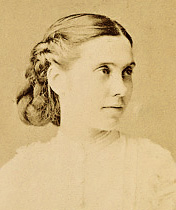
Apolinariya Suslova is a woman known as Dostoevsky's lover. And not just any lover. Dostoevsky's later worksThe Gambler.He is a man of strong personality who was also the model for Polina, a major character in the
Dostoevsky was madly in love with this woman and suffered agonizingly just like the characters in his novels.
The episode during his 1863 foreign trip with Soussourois is especially very famous.
I can't tell you everything here because it would be too long, but I can tell you that Dostoevsky is an incredibly bad person. Dostoevsky was meeting Soussourois in Paris, but on the way to Paris, he got into a gambling game and left Soussourois waiting all alone. Fortunately, Dostoevsky won the bet and sent money to his brother, but by this time, his gambling addiction had already begun. His experience at this time leads to "The Gambler".
And shockingly for Dostoevsky, Soussourois had found a new lover in Paris during his tardiness.
The moment of their joining together is like a shuraku, like something out of a novel. Dostoevsky's second trip abroad was tumultuous from the start.
And as you are probably dimly aware from what I have told you so far, yes, Dostoevsky is on an adulterous trip. He sent his sick wife away while he traveled to Europe with his mistress. It is the worst of all worlds. And he is selfish enough to be late for the rendezvous because he gambles.
I'm sorry, but I really don't like Dostoevsky at this time either. I don't dislike him, but I can only say that he is a really helpless no good person and a maverick.
However, this consuming love and hatred never left Dostoevsky's grasp. As a wife, she would have been the worst, but as a lover, he could not forget her, as his later letters show. This was the prototype of the beautiful but fiery tempered women in Dostoevsky's novels. His love affair with Soussourois, a woman of strong personality, is a very interesting comparison for his later happy marriage with Anna.
For more information on Soussourois, please see the followingThe Diary of Soussourois - Dostoevsky's Lover.I recommend this book to those who are interested in the details in a book called
Tragedy 1864. Death of his wife and brother. The year of Dostoevsky's despair.
In 1863, he traveled to Western Europe with Soussourois. After that hopeless journey, more hell awaited Dostoevsky.
His wife Maria's condition was now so desperate that he brought her back to Moscow from Vladimir, where she was recuperating, and Dostoevsky never left her side for a moment.
And that was not the only horrific situation. The magazine that he and his brother were jointly running was also delayed significantly. In fact, the magazine had been censored and banned in 1863. He tried various measures to compromise by publishing a new magazine, "Jidai" (The Times), but the results were disastrous. The cover and paper quality of the magazine, which had been created as a stopgap measure, were so shabby that it came with the added bonus of a large number of typographical errors. There was no way they could get any subscribers. The magazine's management was clearly in danger.
Finally, in April 1864, his wife Maria breathed her last.
And the tragedy does not end there.
Three months later, in July, his beloved brother Mikhail also died suddenly. It was a very short-lived bereavement. This death had a devastating effect on Dostoevsky, not only spiritually but also materially.
They have been literary companions since childhood and have lived as if they were one. When Dostoevsky was exiled to Siberia, his elder brother Mikhail devoted himself to Dostoevsky. After his return to Russia, they jointly ran a magazine, as we have already seen. However, the management of this company was also led by Mikhail. Mikhail died unexpectedly. Dostoevsky tried his best to recover the company. However, the ship, which was sinking to begin with, did not rise to the surface, and everything collapsed. What remained was a huge debt. Dostoevsky had to bear it all.
Dostoevsky's long life of poverty was mostly due to his debts at this time. We will talk about this debt later, but this is how Dostoevsky spent the year 1864, a year in which he hit rock bottom. It was truly a year in which he lost everything.
The Birth of Crime and Punishment
Dostoevsky was in danger of being put in debtor's prison due to his enormous debts. In Russia at that time, if a person could not repay his debts, he would be imprisoned. Although Dostoevsky had survived his Siberian exile, his life was in danger now that his epilepsy had worsened. Dostoevsky strongly feared debtor's prison.
Dostoevsky's desperate search for money left him no choice but to borrow money from an unscrupulous person. This contract would later bring Dostoevsky and his wife Anna together, but that will be discussed later.
So, how did Dostoevsky get through this crisis?
.........he escaped.
With only 175 rubles in his pocket, he left Russia for Wiesbaden, Germany. One ruble at that time was about 1,000 to 2,000 Japanese yen. In other words, he fled the country with only about 200,000 yen in cash.
And Wiesbaden is a casino town. He had won more than 10,000 francs here a few years ago. He must have had a strong feeling from that time. He gambled on the hope of a comeback here.

However, the plan was quickly dashed. In five days, he had lost all the money he had. He was driven to the point of applying for a loan from Turgenev.
I was truly penniless. The money I borrowed from Turgenev disappeared immediately. He made repeated requests for money, but he never heard from them. All was not well.
Unable to pay for the inn where they were staying, they had no food to eat and no candlelight. The innkeepers treated him humiliatingly as someone who could not pay. Dostoevsky had no choice but to give up. He mobilized all of his powerful mental faculties and immersed himself in the conception of his works like a madman.
Dostoevsky then shut himself up in a small, kennel-like room and devoted himself to writing from morning till night. Finally, in an extreme state of mind, as if he were being burned by a fever, it began to take shape. And so it was born.Crime and Punishment."It is.
Crime and Punishment" was written in a small, dark room, in a state of madness. This is the root of the black-magic-like magic characteristic of Dostoevsky's works. The intense story of "Crime and Punishment" was spun out of the writer's own madness.
When the serialization of "Crime and Punishment" began in 1866, the response was far greater than expected. Dostoevsky had already made his comeback with "Record of the House of Death," and with this work he finally succeeded in making a full return to the Russian literary scene.
In 1866, Dostoevsky seemed to have been revived by the success of Crime and Punishment.
But before he could bask in the afterglow of his success, he was faced with the biggest crisis of his life as a writer. It was the aforementioned contract with the unscrupulous company.
If they fail to honor this contract, all rights to Dostoevsky's works from now on will belong to his creditors. No matter how many new works he releases, they will all belong to his creditors. In other words, it is a complete slave contract. Dostoevsky signed this contract in order to repay a debt that he was obliged to pay, and the deadline for this promise was fast approaching.
If I don't do this, my life as a writer will come to an end. To be deprived of the rights to all of my works is tantamount to death.
It was Dostoevsky in 1866 who was in this unenviable predicament.
And it was Mrs. Anna who appeared to save the day.
A savior appears at Dostoevsky's greatest crisis. From the very first encounter, it can only be described as a drama.
In the next article, I will discuss Dostoevsky's contract and his meeting with Mrs. Anna.
Finally, the two protagonists of this story.
be unbroken
Next Article.
Click here to read the previous article.
Click here for a list of Dostoevsky's recommended books.
List of recommended Dostoevsky biographies."
List of recommended Dostoevsky commentaries.
A list of recommended commentaries on "Dostoevsky and Christianity."
Related Articles












